
In the modern world of technology, few would expect that the fate of the entire global AI industry depends on a fabric produced by a Japanese company that is more than 126 years old.
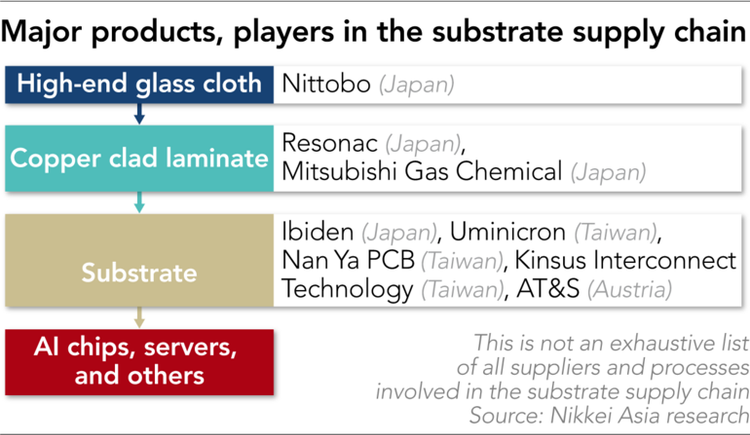
That is Nitto Boseki (Nittobo) - a traditional textile company that is now holding the golden key to the AI revolution. Strangely enough, a textile company, you heard right. And their product is a unique fabric in the world.

Over the past year, the private jets of the world's top tech executives, including NVIDIA, Microsoft, and AMD, have been flying toward Tokyo with a single mission: to convince Nittobo to sell them more of a fabric known scientifically as "low-thermal-expansion glass fabric," or simply T-glass.
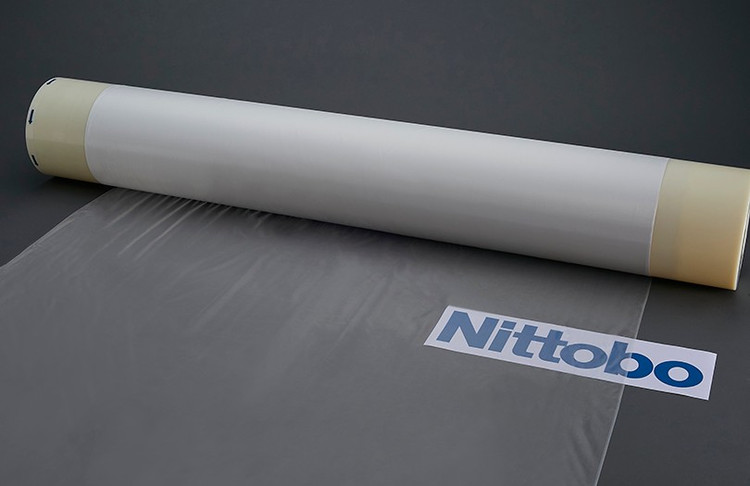
T-glass is no ordinary fabric. It is a super-sophisticated material, prized for its ability to maintain dimensional stability, exceptional stiffness, and especially its ability to support high-speed data transmission - vital factors for AI computing.
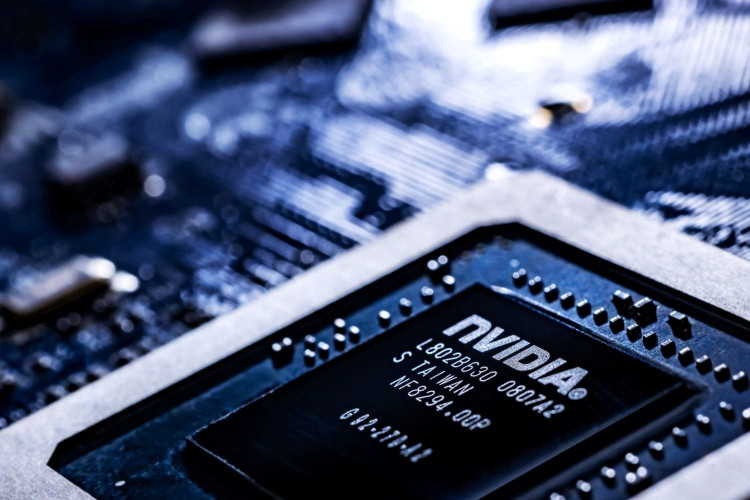
" Most of Nittobo's high-end T-glass production capacity this year has been booked by NVIDIA, Microsoft, Google, and Amazon. All these AI data center manufacturers realize that glass fabric is too important," an executive at a printed circuit board maker revealed .

In the packaging process of advanced AI chips, components are subjected to extremely high temperatures and high pressures. Without the rigidity of T-glass to prevent the substrate from warping, the entire production process could fail, causing the chip defect rate to skyrocket.
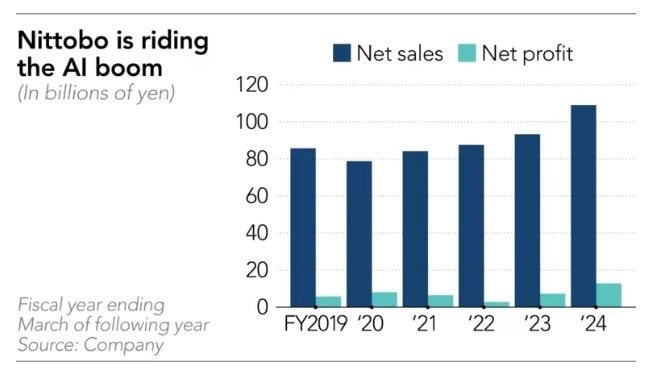
“ Demand for T-glass is skyrocketing because its rigidity can help prevent substrate bending during advanced chip packaging, which is crucial for AI chip manufacturing productivity ,” explained a senior executive at Unimicron, the world’s leading chip substrate supplier.
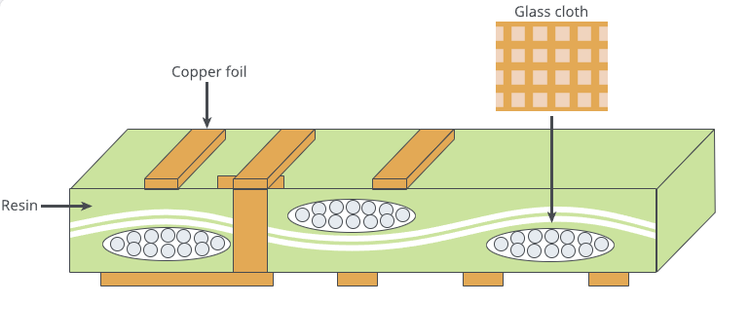
Nittobo supplies T-glass to materials makers like Resonac and Mitsubishi Gas Chemical, which then produce copper overlays for circuit boards. These overlays are then used by chip substrate makers to create high-end chip mechanisms, which are then used to assemble and package AI chips from NVIDIA and others.
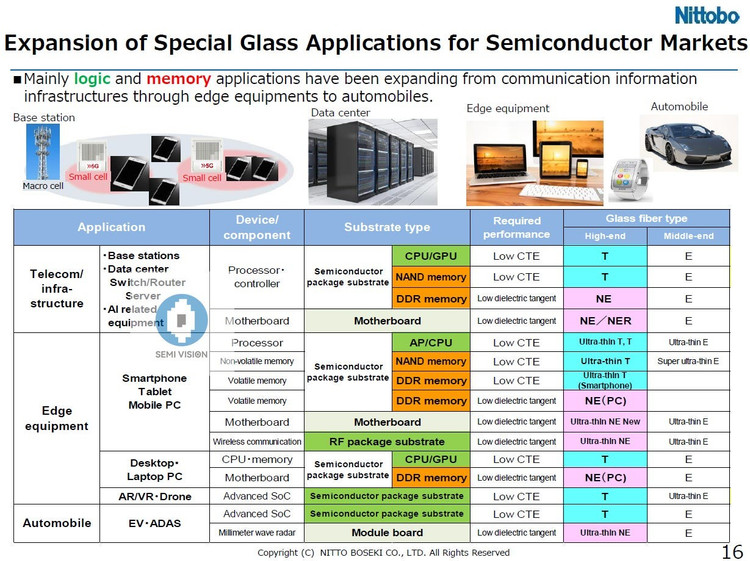
The T-glass supply shortage has been severe since the second half of last year. An executive at Kinsus, a supplier to both NVIDIA and AMD, described it this way: " If you bought a certain amount of capacity from Nittobo last year, your allocation from the company will stay the same for this year, next year, and the year after that. It's not like you can show up at Nittobo with a big bag of money and buy more ."
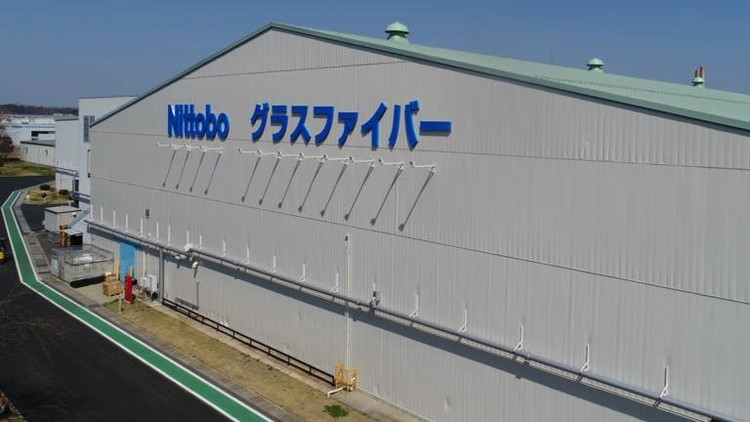
Aware of these limitations, Nittobo has pledged to invest 80 billion yen ($550 million) to expand semiconductor production, aiming to double its Taiwan capacity by March 2028. However, Nittobo CEO Hiroyuki Tada is cautious: " We are doing everything we can to avoid disturbing customers. But this is not a situation where we can go around making big promises about increasing capacity ."

Nittobo is a reminder of how seemingly obscure materials makers underpin the entire global technology supply chain. Japan is home to many of them: Ajinomoto Build-up Film is essential in every high-end chip substrate, Shin-Etsu and JSR’s premium photoresists are essential for advanced chip manufacturing, and Resonac’s advanced CCL is used in every high-end server.
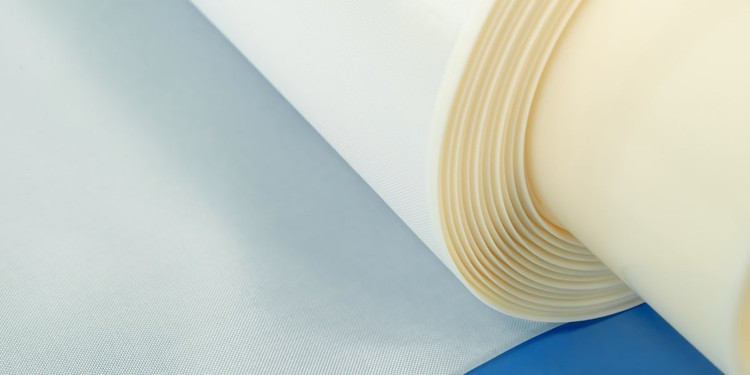
TJ Tseng, president of Unimicron—one of just two suppliers of high-end substrates for NVIDIA’s AI chips—confirmed that the constraints on high-end chip substrates will continue into next year. With roots in a factory founded in 1898, Nittobo recorded 109 billion yen in revenue last fiscal year, up 17% from the previous year. The company’s operating margin jumped to 15.1% from 9%, largely due to demand for AI applications.
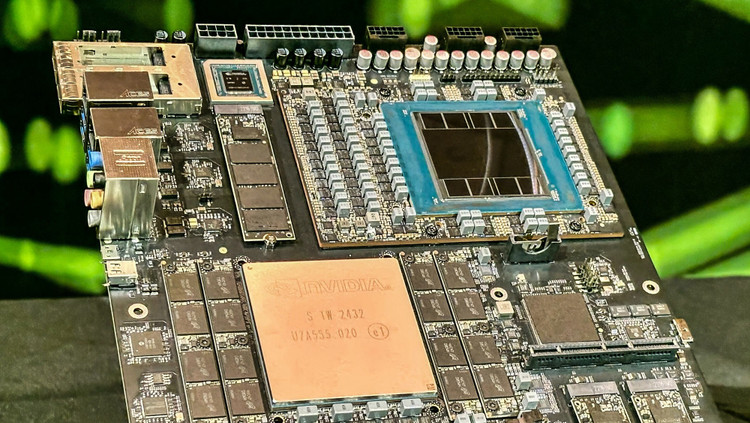
“ Many Japanese material makers hold really important positions in specific technologies because they have spent years on quality and superior solutions,” said David Dai, an analyst at Bernstein Research who specializes in the Japanese semiconductor supply chain. “However, most Japanese companies prefer steady, consistent growth rather than quickly building large capacity when demand spikes .”
Source: https://khoahocdoisong.vn/soi-vai-thuy-tinh-dac-biet-nam-giu-van-menh-nganh-ai-toan-cau-post1550666.html





![[Photo] Closing of the 13th Conference of the 13th Party Central Committee](https://vphoto.vietnam.vn/thumb/1200x675/vietnam/resource/IMAGE/2025/10/08/1759893763535_ndo_br_a3-bnd-2504-jpg.webp)




















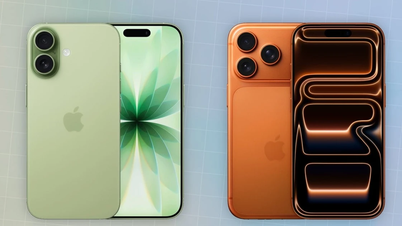




























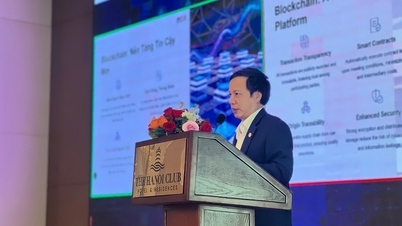















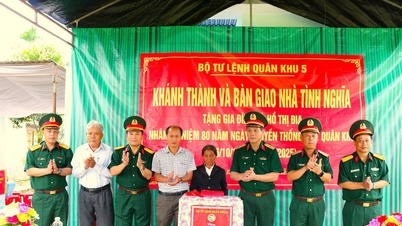
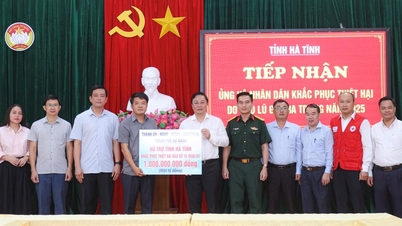



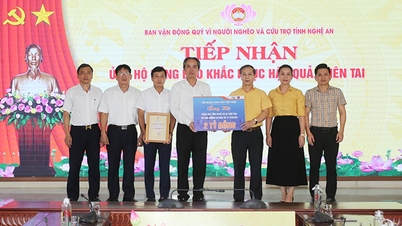
















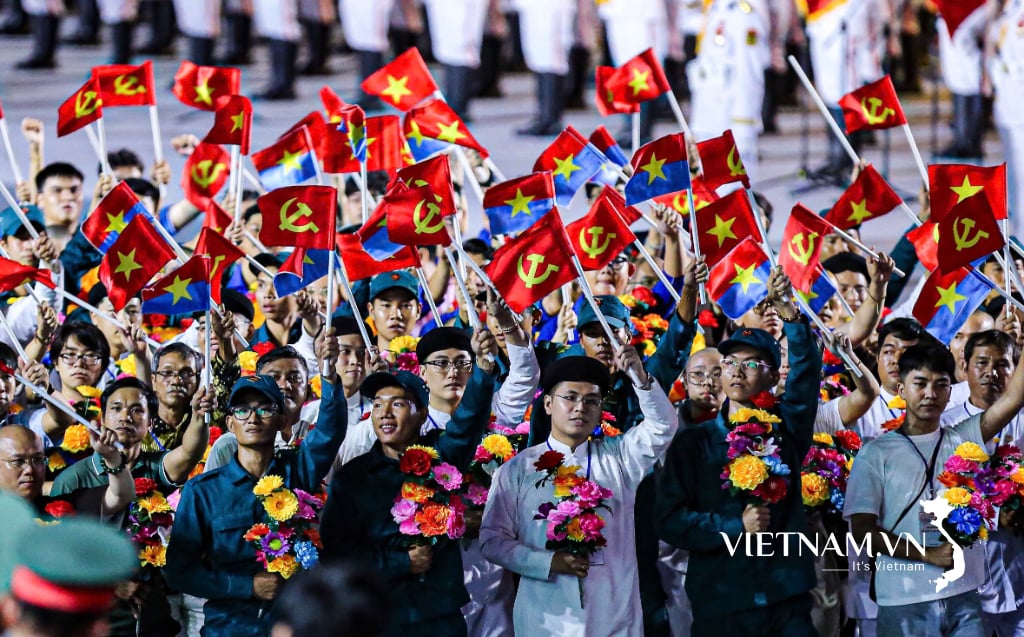
Comment (0)